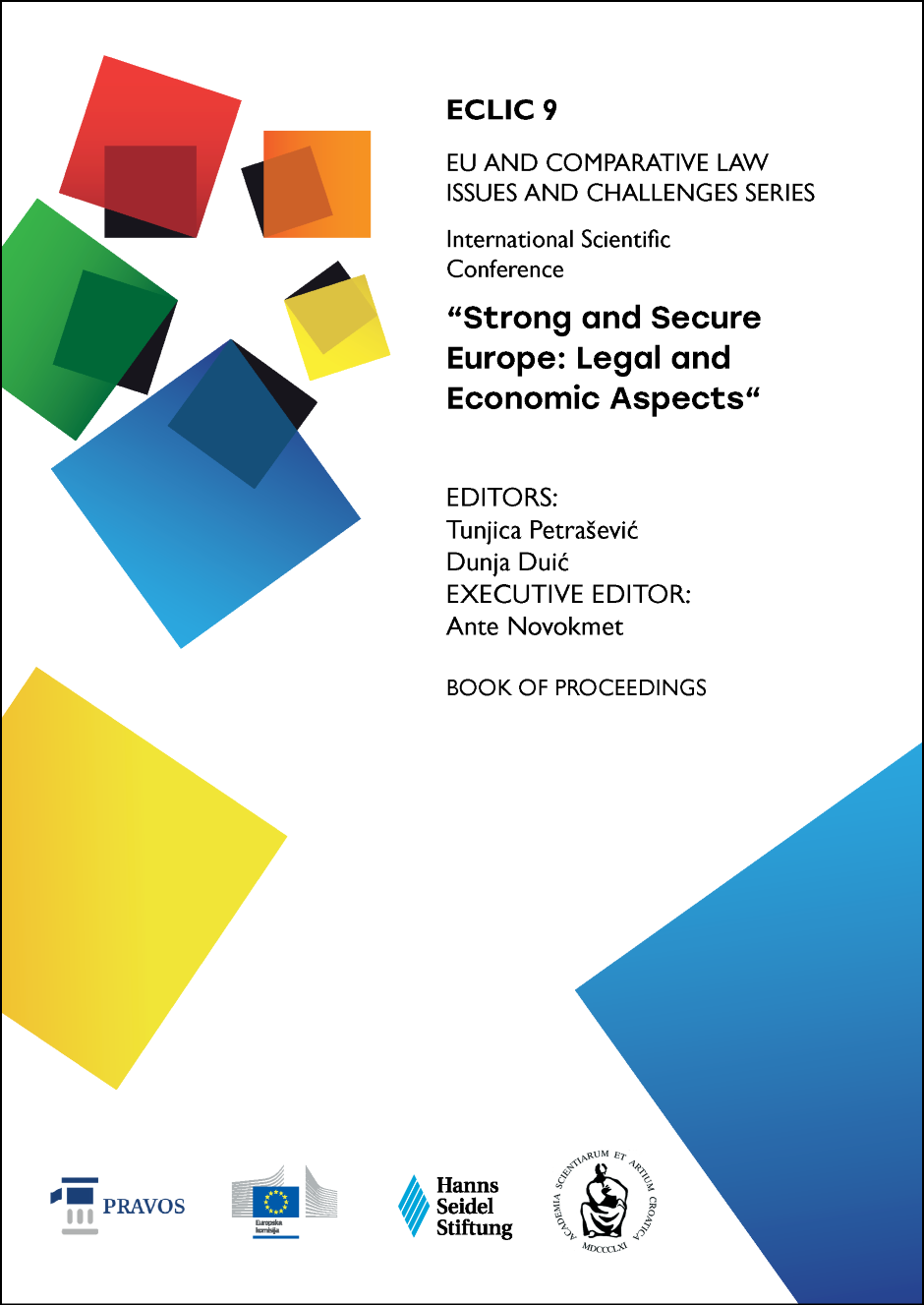THE IMPACT OF EU NATURE RESTORATION LAW ON PRIVATE PROPERTY RIGHTS – BETWEEN THE ENVIRONMENTAL PROTECTION AND THE (IN)COMPATIBILITY WITH THE ROMAN LEGALTRADITION
DOI:
https://doi.org/10.25234/eclic/38101Abstract
Regulation (EU) 2024/1991 of the European Parliament and of the Council of 24 June 2024 on nature restoration and amending Regulation (EU) 2022/869 (EU Nature Restoration Law) is the first continent - wide comprehensive law aimed at restoring ecosystems, habitats, and species in the EU. Entering into force on 18 August 2024, the Regulation obliges all Member States to adopt effective restoration measures without delay, with the objective of covering at least 20% of the EU’s land and sea areas by 2030, and ensuring that all ecosystems in need of restoration are addressed by 2050. Given that over 80% of Europe’s natural habitats are currently in poor condition, the EU Nature Restoration Law introduces legally binding targets that aim to reverse biodiversity loss and improve the ecological integrity of the Union’s territory. In order to reach the goals, it is unavoidable that the restoration measures will affect property rights and create a need to supplement existing legal remedies for subjects whose rights will be affected by the restoration measures. As the regulation of property rights—particularly ownership— falls within the exclusive competence of each Member State, the legal and constitutional traditions regarding property vary significantly across the Union. In Croatia, building up on Roman legal tradition, ownership represents a most comprehensive right over an object. As the Nature Restoration Law intervenes in how property may be used, questions arise as to whether the required measures are compatible with the traditional understanding of ownership. This paper examines the implications of the EU Nature Restoration Law on private property rights, using Croatia as an example. It begins by outlining the definition and core attributes of dominium in Roman law and its reception in Croatian legal doctrine. The analysis then turns to the key provisions of the EU Nature Restoration Law, highlighting the absence of explicit mechanisms for reconciling ecological objectives with property rights as fundamental rights. Finally, the paper offers conclusions on the significance of nature restoration efforts, thereby underlining the necessity of harmonising environmental goals with the inviolability of private ownership as a cornerstone of modern legal systems.
Downloads
Published
Issue
Section
License
Copyright (c) 2025 Nikol Žiha, Marko Sukačić

This work is licensed under a Creative Commons Attribution-NonCommercial 4.0 International License.
Authors retain the copyright on the papers published in the Journal, but grant the right of first publication to the Journal. Papers accepted for publication or already published in ECLIC of the Faculty of Law in Osijek may be published by the author(s) in other publications only with proper notice of its previous publication in ECLIC.


